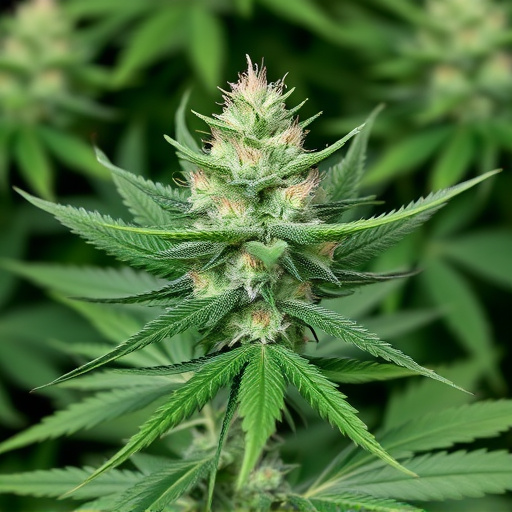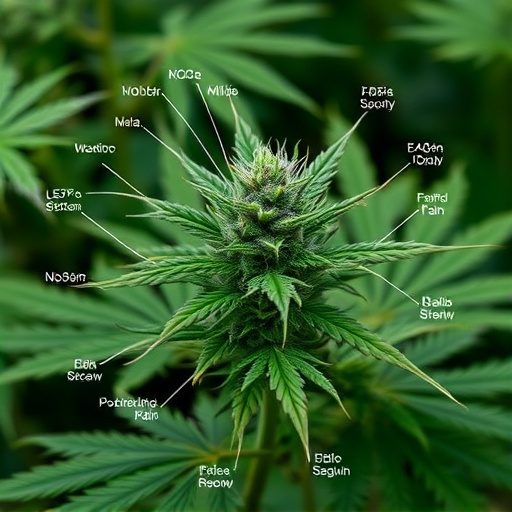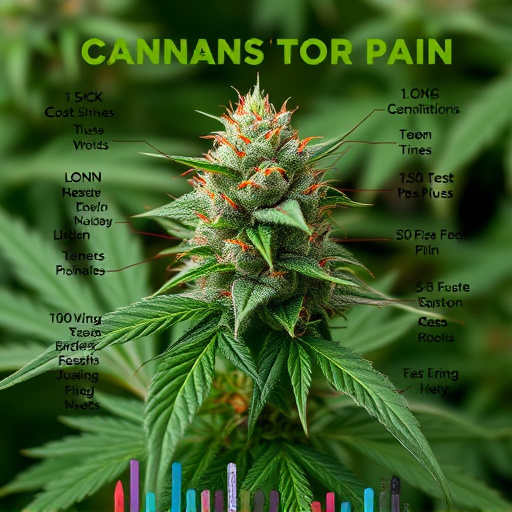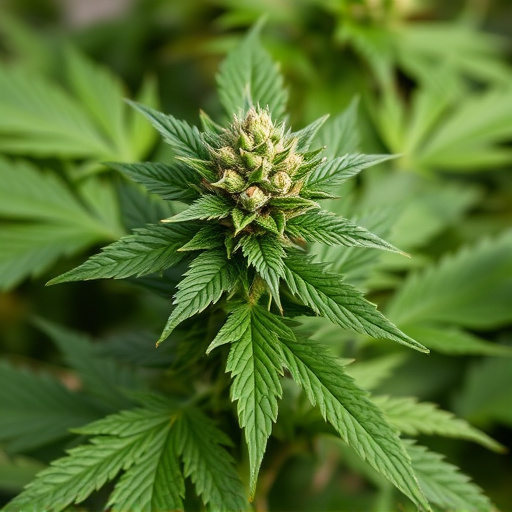High-THC strains of cannabis offer promising therapeutic benefits for managing chronic pain through their interaction with the body's cannabinoid receptors. However, these potent strains can significantly impact mental health, potentially leading to heightened anxiety or depressive symptoms and affecting neuroplasticity and cognitive function. Balancing THC levels with CBD in selected strains and understanding personal tolerance is crucial for safe and effective pain management using cannabis.
Discover how high-THC strains of cannabis impact both the body and mind in this comprehensive guide. We explore the unique effects of potent THC on physical and mental well-being, with a particular focus on their role in managing pain. From understanding the science behind these strains to examining potential mental health implications, this article offers valuable insights for consumers considering high-THC cannabis as a treatment option for pain relief. Learn about the balance between effective pain management and the associated risks.
- Understanding High-THC Strains and Their Effects on the Body
- Mental Health Implications of Consuming High-THC Cannabis
- Balancing Pain Relief with Potential Risks of High-THC Strains
Understanding High-THC Strains and Their Effects on the Body

High-THC (tetrahydrocannabinol) strains of cannabis have gained significant attention for their potential to offer therapeutic benefits, especially when it comes to managing pain. These strains are characterized by their high levels of THC, a chemical compound responsible for most of cannabis’ psychological effects. Understanding how these strains interact with the body is crucial in harnessing their potential for treating various conditions, including chronic pain.
When consumed, THC binds to cannabinoid receptors in the brain and throughout the nervous system, leading to its diverse effects. In terms of pain relief, THC can reduce inflammation, interact with pain signals sent to the brain, and even stimulate the release of endorphins, natural painkillers produced by the body. This complex interaction makes high-THC strains a popular choice for folks seeking alternative treatments for conditions like arthritis, fibromyalgia, and nerve damage, among others. However, it’s important to note that individual responses can vary greatly, and consulting with healthcare professionals is essential before incorporating cannabis into any pain management regimen.
Mental Health Implications of Consuming High-THC Cannabis
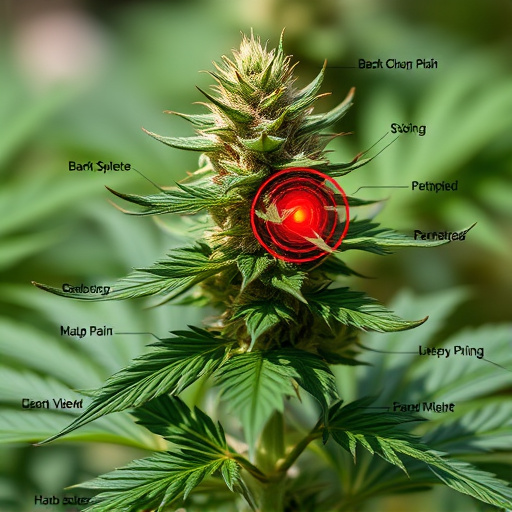
High-THC strains, while potent in relieving physical pain, can have significant mental health implications. The mind-altering effects of THC, particularly at elevated levels, interact with the complex neural networks involved in mood regulation and emotional processing. For some individuals, chronic consumption may lead to heightened anxiety or even depressive symptoms, as THC can disrupt the delicate balance within these systems. This risk is especially pertinent for those already susceptible to mental health conditions.
Research suggests that cannabis use—especially high-THC strains—may impact neuroplasticity and cognitive function, particularly in adolescents and young adults whose brains are still developing. Strains with higher THC content can induce psychotic episodes or exacerbate existing psychosis in predisposed individuals. However, it’s crucial to note that the relationship between cannabis consumption and mental health is complex, and individual responses vary greatly. The choice of strain, frequency of use, and personal tolerance play significant roles in determining potential outcomes.
Balancing Pain Relief with Potential Risks of High-THC Strains

While high-THC strains have shown promise in providing potent pain relief, it’s crucial to balance this potential benefit with the risks associated. THC, the primary psychoactive compound in cannabis, interacts with the endocannabinoid system (ECS), which plays a significant role in regulating pain perception and inflammation. This interaction can lead to reduced pain and discomfort for many individuals suffering from chronic conditions like arthritis or neuropathy. However, high doses of THC can also trigger anxiety, paranoia, and cognitive impairment in some users.
The key lies in selecting strains with balanced levels of THC and CBD (cannabidiol), a non-psychoactive compound known for its anti-inflammatory properties. Strains rich in CBD can complement the effects of THC, mitigating potential risks while amplifying pain relief. Additionally, personal tolerance and individual responses to cannabis should be considered. Patients are encouraged to start with low doses and gradually increase as needed under professional guidance, ensuring a safe and effective experience with strains of cannabis for pain.
High-THC strains, while offering potential benefits for managing pain and other conditions, come with risks. The powerful effects on both the body and mind require careful consideration. As research continues to evolve, understanding the nuances of different strains and their impact is crucial for making informed decisions about using cannabis for pain relief. Remember that balance is key; exploring strains for their analgesic properties should be accompanied by awareness of their mental health implications to ensure a safe and effective experience.




